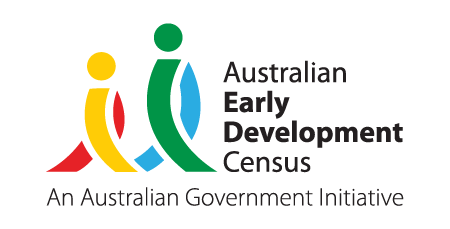On this page
The Australian Early Development Census (AEDC) is a nationwide data collection that looks at how young children are developing at the time they start their first year of full-time school.
Researchers can find information on this page on what type of data is available, how to access it and guidance and requirements for using it.
About the AEDC
The AEDC highlights what needs to be improved to support children and their families and is being used by governments, researchers, community organisations, education and care sectors.
The AEDC is the only measure of its kind in Australia, and Australia is the only country conducting this census nationally. Learn more on the national AEDC website or:

Why early development research is important
Research into how we can support children to be developmentally on track on all 5 AEDC domains by the time they start school is important to improve early childhood development outcomes. It helps all levels of government, community and education sectors with planning, policy, service and program decisions.
The data provides unique insights from local community to national level. It’s helping assess the impact of social, education, health and economic circumstances on children’s development and learning outcomes, and society as a whole.
Uses of the AEDC data include:
- research about early childhood development
- informing schools and early childhood education and care services of ways to improve their practices
- informing the development and evaluation of national, state and community priorities, programs and policies, through statistical analysis and publication of information about the early development of children.
Visit the national AEDC website for more information about how the AEDC assists policy reform or find out more about the public benefit of the AEDC.
How the data is collected
Since 2009 data is collected:
- every 3 years
- by teachers of children in their first year of full-time school
- in schools across Australia
- using the Australian version of the Early Development Instrument
- in a secure online system
- forming a robust evidence base to inform research.
The Early Development Instrument has been validated for use with Australian Aboriginal and Torres Strait Islander children. This validation ensures that the tool is reliable and effective in assessing early childhood development within these communities. Additionally, the instrument has been adapted to consider cultural differences, acknowledging the unique influences on child development in these groups.
Learn more about the validation and trial of the AEDI.
Accessing the data
AEDC data is available in a range of formats publicly or via application in accordance with the AEDC data guidelines.

South Australian results and resources
Find resources presenting South Australian results on our website:

National level results
AEDC data is publicly available on the AEDC Data Hub. Results are reported at a national, state and community level.
Additional data products
Additional data products for download include time series tables by LGA, SA2, SA3, SA4, GCCSA, Remoteness, GIS data and SEIFA.
Requesting other data
To request other AEDC data email the Data Management Agency at support@aedc.gov.au.
Or find more contact details on the AEDC contact page.
Guidance for researchers on the national website
Visit the researcher section of the AEDC website for information about:
- research priorities aiming to inform public policy and practice
- the types of AEDC data available, including for data linkage
- accessing the data
- appropriate use of AEDC data, including guidelines on the handling and publishing of AEDC data.
A range of resources are available to help researchers using AEDC data.
The reporting, publication and analysis of AEDC data and results must follow the AEDC data guidelines.


